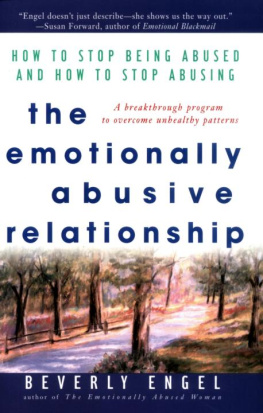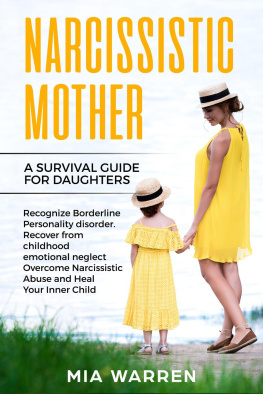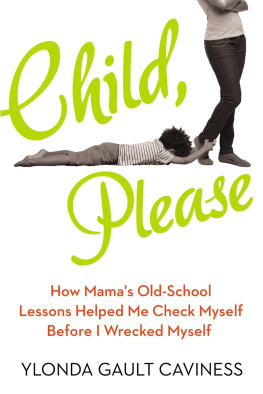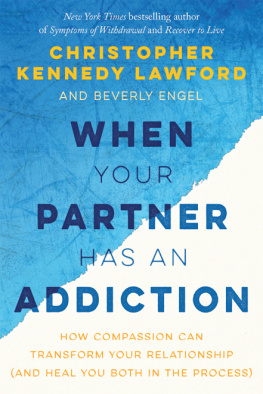Praise for
Raising Myself: A Memoir of Neglect, Shame, and Growing Up Too Soon
Beverly Engel saved my life by showing me, and millions of others, how to recover from the aftermath of abuse. Now, we get to discover the woman behind the recovery movement. Through her personal story, Beverly illuminates how quickly our innocence can be destroyed by the subtle choices those who are supposed to love us make, and, more important, teaches us how to have hope for a better future.
Rhonda Britten, Emmy Award winner, best-selling author of Fearless Living, and founder of Fearless Living
Beverly writes with poignancy and insight about a horrific childhood that could have broken her spirit. Raising Myself is the remarkable journey of a lost child becoming an empowered young woman. We follow Beverly as she journeys from one mishap to another, searching for herself, searching for love, searching for meaning. The fact that she was successful at maneuvering through the minefield of her childhood is a testament to her courage, strength, and resilience. There is brutal honesty here, but there is also a great deal of hope.
Susan Forward, PhD, author of Mothers Who Cant Love and Toxic Parents
When we write a coming-of-age memoir, we become the witness to the life of the child we once were, someone who did not have the larger perspective of the writer/narrator. Raising Myself asks the reader to join Beverly Engel as an abused and neglected child, and to see the world through her eyes. The reader is comforted by the knowledge that she will survive and heal, and the book gives hope to those who have been lost.
Linda Joy Myers, president of the National Association of Memoir Writers and author of Dont Call Me Mother, Song of the Plains, and The Power of Memoir

Copyright 2017 Beverly Engel
All rights reserved. No part of this publication may be reproduced, distributed, or transmitted in any form or by any means, including photocopying, recording, digital scanning, or other electronic or mechanical methods, without the prior written permission of the publisher, except in the case of brief quotations embodied in critical reviews and certain other noncommercial uses permitted by copyright law. For permission requests, please address She Writes Press.
Published 2017
Printed in the United States of America
ISBN: 978-1-63152-367-0 pbk
e-ISBN: 978-1-63152-368-7
Library of Congress Control Number: 2017957726
For information, address:
She Writes Press
1563 Solano Ave #546
Berkeley, CA 94707
She Writes Press is a division of SparkPoint Studio, LLC.
I dedicate this memoir to all my clients, past and present. Your courage and determination have often been my inspiration. Continue to struggle, continue to allow yourself to feel your feelings, and continue to believe that there is a better life ahead for you.
Related Books by Beverly Engel
The Right to Innocence: Healing the Trauma of Childhood Sexual Abuse
Divorcing a Parent
The Emotionally Abused Woman
The Emotionally Abusive Relationship
The Power of Apology: Healing Steps to Transform All Your Relationships
Honor Your Anger: How Transforming your Anger Style Can Change Your Life
Breaking the Cycle of Abuse: How to Move beyond Your Past to Create an Abuse-Free Future
Healing Your Emotional Self: A Powerful Program to Help You Raise Your Self-Esteem, Quiet Your Inner Critic, and Overcome Your Shame
The Nice Girl Syndrome: Stop Being Manipulated and Abusedand Start Standing Up for Yourself
It Wasnt Your Fault: Freeing Yourself from the Shame of Childhood Abuse with the Power of Self-Compassion
Shame eats away at the core of who we are.
Christine Caine

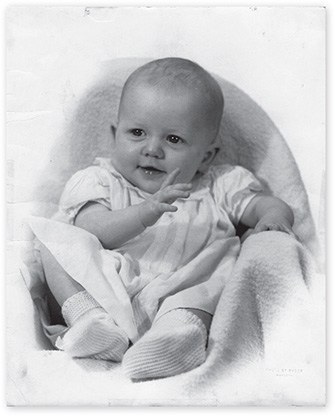
Beverly at six months
foreword
I cant remember a time when I didnt feel shame. But I have evidence that there was once a time when I was, in fact, shame free. I have a photograph of me as a little baby, about six months old. In this picture I am happy and smiling, with a twinkle in my eye. In fact, I dont just look happy; I look radiant and filled with joy.
I have another photo of me at four years old. In this picture I am frowning and I look defiant and lost. The twinkle in my eye has been replaced with a dark, empty look.
What happened to me in those three and a half years? What occurred that had taken away the twinkle in my eyes and the joyous smile on my face and replaced them with darkness, emptiness, and hatred?
The answer: shame. Shame had replaced my innocence, my joy, my exuberance for life. Shame had caused me to build up a walla wall of protection and defiance.
The person I was defending myself against? My mother, a woman who was so full of shame herself that she couldnt help but project it onto me, her unwanted child and the constant reminder of her own shame.
This is the story of how I made my way in the world in spite of my mothers neglect, unreasonable expectations, and constant criticism; in spite of being sexually abused, first at four years old and then at nine; and in spite of being raped at twelve. It is the story of how I came dangerously close to the edge of becoming a child molester, a criminal, a patient in a mental hospital, and suicide. And it is the story of how I battled my inner demons and struggled to keep my heart open and hold on to my humanity.
In Raising Myself you will see an open, compassionate, and loving child gradually begin to lose her humanity. You will watch as a child who cried and prayed to God to help the person in need each time she heard the siren of an ambulance or fire engine, a child who loved everyone and never saw race or economic status, gradually hardens her heart and builds up a wall around herself.
Most experts tell us that no one survives the devastation of severe childhood trauma unscathed. And many people understand that few, if any, victims of child abuse or neglect escape their trauma without experiencing some kind of addiction whether it be alcohol or drug abuse, an eating disorder, sexual addiction, or a gambling or shopping addiction. But few know that most victims end up going down one or more of what I call the six paths of trauma: 1) addiction (alcohol or drug addiction or an eating disorder) 2) sexual acting out (including promiscuity, prostitution, and/or sexual addiction), 3) mental illness, 4) suicidal ideation, 5) criminal or antisocial behavior, or 6) becoming an abuser or perpetual victim. In Raising Myself, I tell the story of how I ended up starting down all six pathsand pulled myself away from the edge each time.
Specifically, in this memoir I illuminate a problem that is seldom addressed: how and why some victims of child abuse act out against society or become abusive toward others, while others become self-abusive or perpetual victims. As they experience my life through my eyes, readers will be able to observe how the drip, drip, drip of abuse, neglect, and constant shaming wore away at my humanity, gradually causing me to become numb, stop having empathy for others, and think only of my own needs. The insights I offer here will be beneficial to those who went down a similar path, as well as those trying to understand a loved one who took the path of acting out sexually, becoming a criminal, or becoming abusive toward others as a result of childhood trauma.


